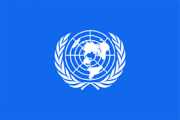Mr. Chairman,
Excellencies,
Distinguished Delegates,
At the outset, my delegation warmly congratulates you, Mr Chairman, on assuming the chairmanship of the Third Committee. We are confident that you will ably guide the work of the Committee to a successful conclusion. Equally, we congratulate the other members of the Bureau and assure you of Jamaica’s commitment to supporting you and the other members of the Bureau in the pursuit of efforts to address the social, humanitarian and cultural agenda of the General Assembly.
Mr Chairman,
I am honoured to speak on behalf of the Delegation of Jamaica in relation to Agenda item 27 (b) on “Social development, including questions relating to the world social situation and to youth, ageing, disabled persons and the family.” In so doing, my delegation aligns itself to the statement made by the representative of Algeria on behalf of the Group of 77 and China, and by St Lucia on behalf of the Member States of the Caribbean Community (CARICOM). Notwithstanding our endorsement of these statements, I take this opportunity to make a few remarks in a national capacity, and also to provide an opportunity for remarks from one of our youth delegates.
We thank the Under Secretary-General, for the substantive reports under this agenda item; and for the comprehensive statement on the work of the Organization regarding the critical issues impacting on progress in the area of social development.
Jamaica remains committed to its international, regional and domestic obligations under the various social protection mechanisms, including the ILO Convention on core labour standards. As such, we are convinced that the decent work agenda is critical to the development of our poverty eradication programme. The range of other issues on the social agenda remain a high priority for Jamaica, including ensuring social inclusion and integration, access to education, food security, health and the post 2015 development framework.
Mr Chairman,
Jamaica welcomes the continued focus on the challenges facing the youth as a follow-up to the outcomes of the High Level Meeting on youth. Against that background, I now hand over to my youth delegate Ms Francina Francis who will focus on the youth agenda.
Ms Francina Francis
Distinguished ladies and gentlemen,
It is a distinct honour for me to address the Third Committee of the UN General Assembly, and to share my perspective on the situation concerning youth in my country.
Jamaica has a long history of youth inclusion in the decision-making process, both at the national and international levels, through a cadre of traditional and non-traditional youth organisations. Our National Youth Council, established in 2004, fosters income-generating initiatives for our youth to expand their leadership capabilities while providing a forum for the deliberation of issues pertinent to youth, especially in inner-city communities. Our National Youth Parliament is a non-partisan forum, which provides an opportunity for our youth to develop skills of political activism and recommend feasible solutions to several of the challenges facing the youth of Jamaica. In addition, the Jamaican Youth Ambassadors Programme promotes youth advocacy in various international fora including, CARICOM, the Commonwealth and the United Nations. These are treasured fora for young people in Jamaica and it is therefore my desire to see youth across the globe granted similar opportunities for development through inclusion.
While these organisations have provided opportunities for youth engagement and empowerment, they are still distant from the majority of youth especially in the rural areas of Jamaica. The failure of traditional forms of education to provide meaningful discussion of issues pertinent to youth creates a situation where youth at risk are unaware of their options. In addition, many youth within rural Jamaica continue to have limited access to non-traditional forms of education, including the information highway since they live with the challenge of internet access.
Many young people in rural Jamaica when presented with issues related to youth development through the United Nations remain largely ignorant of these matters. How can we therefore expect our youth to be agents of change when we are not presented with the resources that will channel our awareness and influence our capacity to evoke change?
Too often, Governments fail to realise that the majority of youth are disconnected from the mandates, the deliberations, and the high-level discussions of organisations such as the United Nations simply because there is not enough effort on the ground for grassroots engagement. If we continually fail to equip youth with the necessary tools to fight the many social, political, and economic trials that constantly beset our society, then the next generation will be unprepared to face these challenges.
In closing, I would like to join other speakers in encouraging other delegations to support the participation of young people in the work of the General Assembly by including youth delegates as members of their delegation. If we wish to keep the “United” in the United Nations we must collectively seek to educate youth on this most important forum available to them.
Thank you for your attention.


